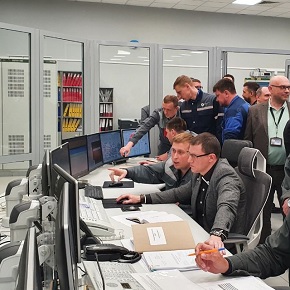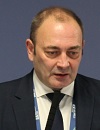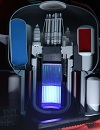 |
||
|
The AUKUS and Article 14: Challenges Ahead AtomInfo.Ru, PUBLISHED 05.06.2023 We publish a Note Verbale dated 1 June 2023 from the Permanent Mission of the People's Republic of China to the IAEA. Note: This summary has been prepared for information of the Board of Governors meeting in June, with the objective of enhancing the awareness of Member States regarding the sensitivity and complexity of the issues concerning any implementation of Article 14 of INFCIRC/153 (Corr.). On May 18, a workshop entitled 'The AUKUS and Article 14: Challenges Ahead' was organized by the Permanent Mission of China at the Vienna International Centre. The workshop was attended by more than 80 representatives from 31 Member States of the International Atomic Energy Agency (IAEA). The Head of the Non-Proliferation and Policy-Making Organs Section, Office of Legal Affairs, Mr. Ionut Suseanu, participated in the workshop as the representative of the IAEA Secretariat. The discussion focused on various aspects of the AUKUS nuclear submarine cooperation and Article 14 of the Comprehensive Safeguards Agreement (CSA) - IAEA document INFCIRC/153 (Corr.). The event was moderated by Mr. Li Chijiang, Secretary General of China Arms Control and Disarmament Association. Three panelists made presentations and shared their views, which are:
There was a Q&A session in which intensive interactions were made. In this workshop the following views, inter alia, were expressed by the presenters and discussants. The AUKUS cooperation for acquisition of nuclear-powered submarines marks the first time in history for Nuclear-Weapon States under the NPT to transfer naval nuclear reactors that operate using weapons-grade highly enriched uranium as fuel to a Non-Nuclear-Weapon State (NNWS) party to the Non-Proliferation Treaty (NPT). This would set a precedent with significant challenges for the IAEA safeguards system in terms of verifying the correctness and completeness of declarations of nuclear activities by a NPT NNWS, and for the integrity of the international nuclear non-proliferation regime with the NPT as its cornerstone. The AUKUS project is expected to use about two or more tonnes of 93%-97.3% highly-enriched uranium as fuel for the naval nuclear propulsion reactors. Article 14 of INFCIRC/153 (Corr.) covers the "Non-application of Safeguards to Nuclear Material to be used in Non-proscribed Military Activities". Thus far, there is no experience or track record for the "non-application" of comprehensive safeguards. The AUKUS project if it goes ahead to completion in its present form of secrecy would set a precedent in the absence of agreed parameters and agreed understandings of the Board of Governors and Member States. Also, thus far, more than eighteen months since the announcement of the AUKUS agreement there have not been any technical, policy or legal briefings or consultations on Article 14 involving the Secretariat, AUKUS parties and Member States. This is a significant break with past Agency practice of open-ended consultations on matters concerning interpretation, implementation or strengthening of Agency safeguards. Such open-ended consultations and committees of the Board were involved in the drafting, negotiation and finalization of safeguards frameworks including INFCIRC/153 (Corr.), the "93+2" safeguards strengthening measures, INFCIRC/540 (Model Additional Protocol), and amendment/recission of Small Quantities Protocols. With regard to Article 14 of INFCIRC/153 (Corr.), it was noted that to the Secretariat's knowledge there is no formal definition of "non-proscribed military activity". Open-ended consultations would be useful and even required to reach a common agreed understanding of the provisions of Article 14. Furthermore, no State or States could assign the responsibility to themselves to determine the meaning and scope of Article 14 - that could only be done by Member States in open-ended consultations. It was noted that a "military-to-military" transfer of naval nuclear fuel could not obviate the requirement to invoke Article 14 provisions as a legal and a policy matter. Another important observation was that whatever the arrangement pursuant to Article 14, it must be designed as fit for purpose regardless of who the partner States might be. Ultimately, the acceptability of any given arrangement should be judged on its non-proliferation merits, and be able to survive the following test: if the names of the parties involved are changed, is it still acceptable? The observation was made that it is the Agency, not the IAEA Secretariat, meaning that the Member States of the Agency and its governing bodies, including the IAEA Board of Governors, should be involved in discussing and approving the Article 14 arrangement. It is difficult to recall a conceptual safeguards document in the history of the IAEA that would have been approved by the Board of Governors by vote rather than by consensus. Establishing a precedent with an arrangement between Australia and the Agency could threaten the universal nature of the safeguards approach and could have a negative impact on the effectiveness and sustainability of the Agency's safeguards system in the long term. The following account in brief summary form covers the discussion session. Some viewpoints questioned why the Board of Governors has not taken more of a leading role in developing policy and technical understandings regarding Article 14. It is the Member States of the Agency and its governing bodies, including the IAEA Board of Governors, that should be involved in discussing and approving the arrangement. Establishing a precedent with an arrangement between Australia and the Agency with no active role of the IAEA Board of Governors could threaten the universal nature of the safeguards approach and could have a negative impact on the effectiveness and sustainability of the Agency's safeguards system in the long term. It is therefore important to discuss the arrangement beforehand with the IAEA Member States with a view to adopting it by consensus. Fundamentally, the history of safeguards has proven that inclusive consensus is a long-term solution that takes care of all the concerns. It needs to be clearly understood that matters concerning the interpretation and implementation of the CSA (INFCIRC/153 (Corr.)) are inherently political and policy matters concerning all IAEA Member States and NPT States parties. The transfer of nuclear materials from Nuclear-Weapon States to Non-Nuclear Weapon States is neither clear nor present in Article 14. From the negotiation of the history of the CSA (INFCIRC/153 (Corr.)), it is clear that the Agency and Member States should be consulted, and satisfactory administrative arrangements reached concerning the use of any nuclear material for a non-proscribed military purpose under the NPT whether or not the material was initially under safeguards. The arrangement that Australia seems to be requesting under Article 14 involves complicated legal and technical matters, which need careful and holistic analysis and in-depth discussion. Since the AUKUS submarine cooperation is unprecedented, the safeguards approach to be chosen will define more commonly all future nuclear-powered submarine acquisition programmes, but also any future work on Article 14. Thus, both professional and governmental open-ended discussions between Member States should take place at the Agency to address it. It may make sense to consider creating an experts' mechanism (various forms possible) that would combine the knowledge and experience of the Agency Secretariat, Member States and relevant experts. The discussion on the AUKUS and Article 14 is only the beginning of a long intergovernmental process. During the workshop raised many if not all necessary questions but finding answers to all of these questions is not the purpose for now. The following questions, inter alia, were asked during the workshop, which reflect some of the complexities of the AUKUS submarine cooperation project:
Other news: Main Construction Phase for Unit 3 of El-Dabaa Nuclear Power Plant Commences in Egypt A technical ceremony for the pouring of the first concrete took place. First batch of nuclear fuel was delivered to Akkuyu NPP The leaders of the two countries gave symbolic permission to deliver the first batch. The CARR reactor is open to foreign customers CARR has received more than 40 applications from abroad. |
Hero of the day 
Unit 2 of the Belarusian NPP included the unified energy system of the Republic of Belarus The grid connection at the reactor power of 40% of the nominal one confirms the availability of all its systems and equipment for electricity generation. In the coming days, specialists will increase the reactor power up to 50% and carry out a series of dynamic tests. INTERVIEW
AtomInfo.Ru OPINION
Rosatom |

